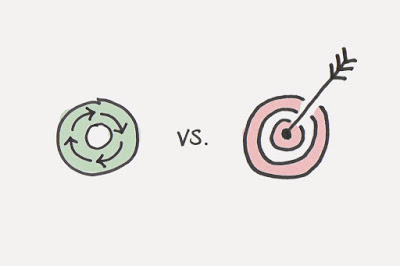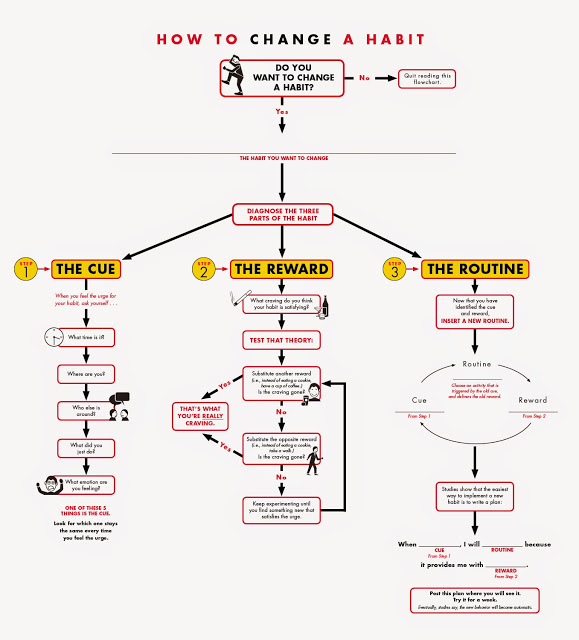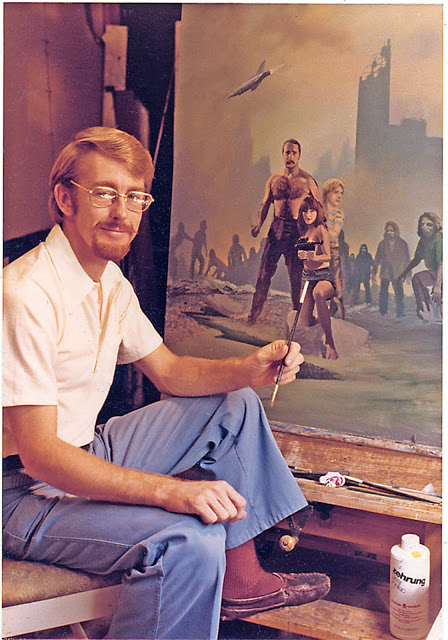Happy 2018 everyone! Welcome to the first week of January, when everyone has the purest intentions, a full tank of willpower, and a list of goals a mile long. Maybe you even followed my New Years goal-setting exercise from a few years ago. I think it’s a critical part of improving yourself and your work to know exactly what it is your goals are — and even more importantly, what priority those goals fall into. But then, of course, you need to start working towards achieving them.
So let’s assume you have your goals all listed out. (Or feel free to come back, I’ll wait.)
Now you have a list of goals, in at least a rough priority order, and now you have to figure out how to break them up into bite size chunks so that you can actually work towards achieving them. Now while you’re doing that, I want to propose something I’m going to try to focus on this year: Instead of making a list of big to-do tasks, I’m going to make a schedule.
I have always been great at large pushes on short deadlines, but I am utter crap at small pushes over long periods of time. And that is how you get giant projects done. That’s how you improve at any skill, how you change your health, how you break down overwhelmingly large projects. It’s about showing up on a regular schedule, and putting X amount of time in, whether you’re in the mood or not, or whether you are feeling especially productive that day or not.
I have to credit Marc Scheff for turning me onto productivity blogger James Clear, and especially this blog post about setting systems instead of goals.
 |
| System vs Goal, from the James Clear article |
In a nutshell, the point is to look at your goal list and priority order, and look at a standard day or week and block out time for that goal. At the beginning it’s not important that you even know what you’re going to do in that block of time — the first few blocks might just be establishing what steps are needed to eventually achieve the goal before you even get down to any concrete work. But if you set aside the time and stick to it, it becomes a habit. And once it’s a habit, you’re going to start picking up momentum. In a few months you’ll have achieved much more than you could have done sitting down and trying to knock out that goal all at once.
For example, if your goal is to remake your portfolio this year, and you save it all to when you are feeling capable of achieving that goal, you might never get there — or if you do, it might be a really painful hard thing to do all at once. However, if you say that for 3 or 4 hours a week you’re going to work on new portfolio pieces, and you stick to it, you’ll end up with new portfolio pieces no matter what.
In fact, James Clear goes as far as saying you don’t need to set goals at all, you just need to know what areas you want to dedicate time to. I don’t know if I’d go that far — humans love making goal lists, especially this time of year — but reframing them as habits, and systems, is a bit of a different POV that might help where big scary to-do lists have failed you before.
Adam Alter agrees and goes further to say that being attached to goals over systems actually makes it harder to achieve what you want.
When people say systems, or schedule, what they’re really talking about is forming habits. As a reminder, here’s my post on habit-forming and the great Power of Habit book by Charles Duhigg.
 |
| From The Power of Habit |
What’s also good about systems, is that they’re more resilient to the chaos of normal life. You might not be able to set aside a weekend or week or more to redo your whole portfolio…but you can probably fit in a few hours once a week. And if you have to skip a week, you just pick back up the week after. Little by little the progress will add up.
In a way, I’ve already taught myself that systems do work for me. Writing this column has been gradual, but over a few years, it’s piled up into a big body of work. I never thought of myself as a writer, but looking back on the sheer volume of material I’ve written for Muddy Colors, it proves to me that I can work in small bite size chunks instead of overwhelming gulps. And I plan on extending it to some other projects I am committed to finishing this year. I hope it works well for you all as well. Report back! and good luck with those 2018 goals!







I just got to the same conclusion over 2017 🙂 do something regullary, even for short time, but with constant routine and you’ll achieve more than with those random chunks of time. Momentum.
It’s true, but it’s hard to get started and stick with it long enough to start seeing gradual results! Gotta have faith in the system.
This is really interesting, I’m not ready to scrap goals all together, as I agree with you that may be a little extreme- but I also see how some of the goals I’ve set for myself are actually habits- like draw every day, or yoga twice a week. Definitely part of a holistic approach to becoming a more fulfilled human being. Love this article! Thanks Lauren!
Whoops I was trying to reply and put it in the wrong place. Yes, it’s all about making habits, really. It’s hard for me to have faith in small steps, but it’s the only way to chew down giant goals…and accountability buddies help.
Great advice, thank you.
Best Self Journal for the win.
I see some connection between systems and “fierce trust”
I see habits as useful for maintenance of a goal but not as replacement of them.
Using the portfolio example, neglects the fact the collection of pieces is just on half of the objective the combination to build full portfolio is not a habit based system it project with a beginning and an end. You need a time line and due date so you can have a useable portfolio, not just collect pieces.
My other problem is that habits are repetitive tasks that when they go unchecked could land short of why you decide to do the habit in the first place. That why goals are necessary evil, lol.
Remember, “doing the same thing over and over again and expecting different results is the definition of insanity” what make it sane is noticing that the objective or goal is not being reached and change your actions aka breaking the habit.